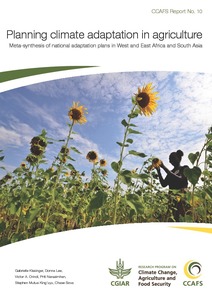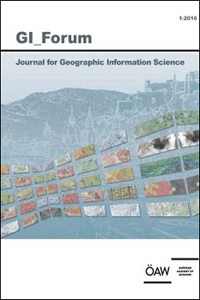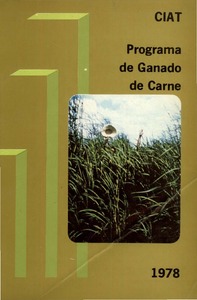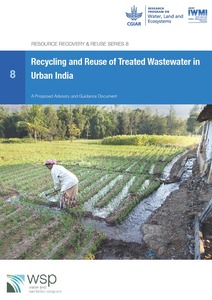Planning climate adaptation in agriculture
This meta-synthesis of national climate change adaptation plans, policies and processes spans twelve countries at various stages of adaptation planning and implementation, in three priority CCAFS regions: West Africa (Burkina Faso, Ghana, Mali, Niger, Se?negal), East Africa (Ethiopia, Kenya, Tanzania, Uganda) and South Asia (Bangladesh, India, Nepal).
Policy recommendations
This final chapter of the book offers a set of policy recommendations. It presents some typical win-win outcomes, including technologies suited for forest poor areas, labour intensive technologies promoting intensification to replace land extensive farming practices, and promoting agricultural systems that provide environmental services similar to those of natural forests.
Proceedings of the Workshop on Flood-based Farming for Food Security and Adaption to Climate Change in Ethiopia: Potential and Challenges, Adama, Ethiopia, 30-31 October 2013
Press the button: online/offline mobile applications in an agricultural context
In many developing countries, smartphone and internet usage has become a revolution for the population and has opened up many possibilities to use new services for communication purposes. For researchers and development organizations, it is now possible to engage more directly with beneficiaries during the implementation phase of a project. However, many regions still face the problem of a non-existent or unreliable internet connection, which is why mobile applications have to be able to work offline as well as online.
Proceedings of the Launching Workshop of the Agricultural Water Management Platform, Addis Ababa, Ethiopia, 15-16 January 2015
Programa de Ganado de Carne: Informe de 1978
Property rights and soil fertility management in Niger
This research was undertaken as a Ph.D. dissertation (Stanford University) in conjunction with the ILCA programme in Niamey, Niger. The objective of the research was similar to that of the World Bank studies: to test how land tenure affects land-improving investment, agricultural productivity and resource management. The standard hypothesis is that land tenure that is non-exclusive insecure or non-transferable will lead to under-investment and depressed factor mobility.
Rainfall and Rainfall Variability
In Africa, where most agriculture is rainfed, crop growth is limited by water availability. Rainfall variability during a growing season generally translates into variability in crop production. While the seasonality of rainfall in the drier rangelands can play a significant role in productivity, rain-use efficiency (RUE)—the amount of biomass produced (in kilograms of dry matter per hectare) per millimeter of rainfall—also drives production.
Recognizing traditional tree tenure as part of conservation and REDD+ strategy
Reducing emissions from deforestation and degradation (REDD ) should focus on places where such emissions occur. Protected Areas (PAs) are, in theory, protected and hence, should have no emissions associated with land use/land cover change. In practice rotection is incomplete. Can PAs be included in REDD schemes? Can 'paper parks' be included that exist on paper rather than in reality? How concrete should threats be before we call carbon (C) protection 'additional'? The dilemma may be more manageable if protected areas are included in a broader landscape approach to REDD.
Recycling and reuse of treated wastewater in urban India
Recycling and reuse of treated wastewater are an important part of the sanitation cycle and critical in an environment such as urban India with decreasing freshwater availability and increasing costs for delivering acceptable quality water, often from far distance. This report has been developed as a possible guidance document for the Indian government and gives substantial focus to the financial and economic benefits of wastewater recycling from the perspective of public spending.
Recycling and reuse of treated wastewater in urban India: a proposed advisory and guidance document
Recycling and reuse of treated wastewater are an important part of the sanitation cycle and critical in an environment such as urban India with decreasing freshwater availability and increasing costs for delivering acceptable quality water, often from far distance. This report has been developed as a possible guidance document for the Indian government and gives substantial focus to the financial and economic benefits of wastewater recycling from the perspective of public spending.







